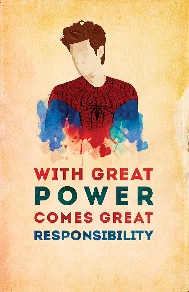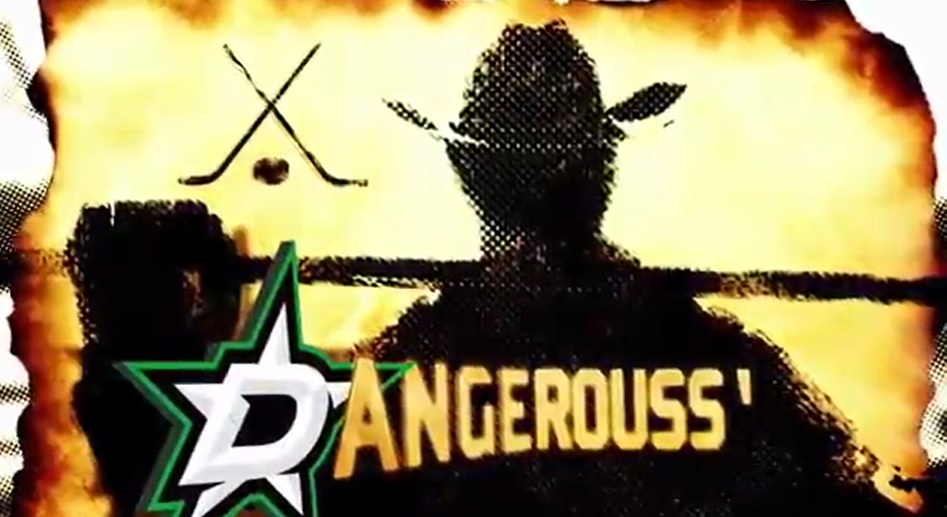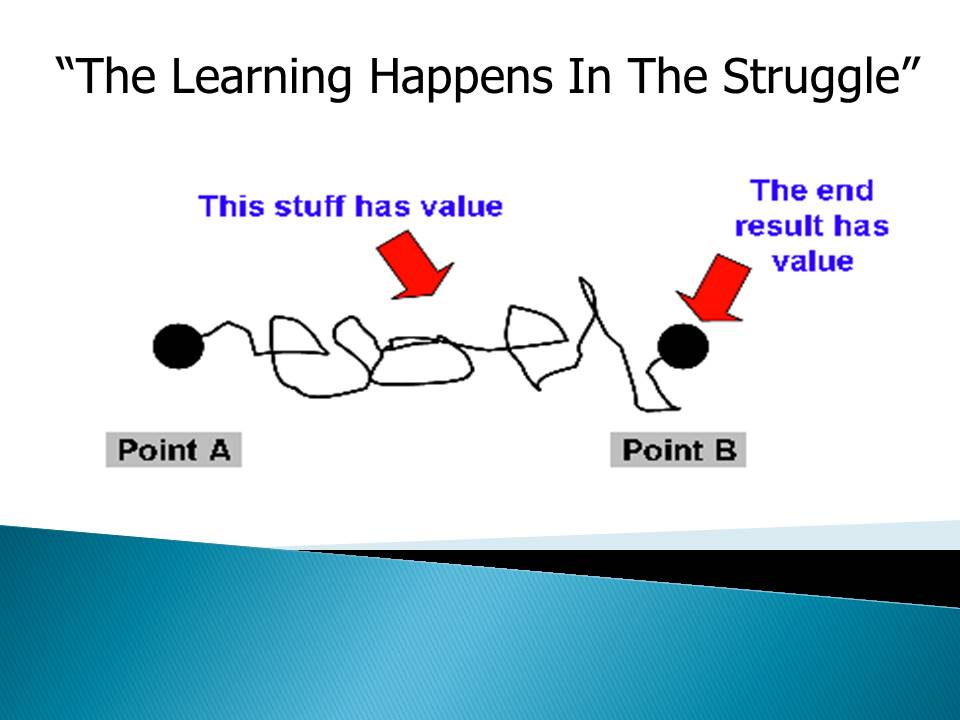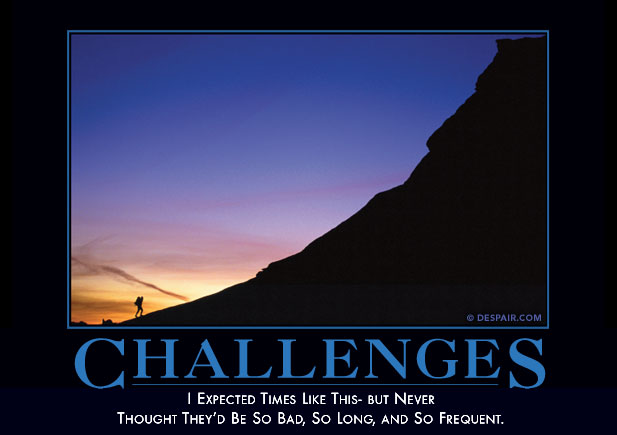 My ELA comrades are fond of discussing ‘universal themes’ and ‘common plots’ in literature and in life. I can’t speak to every book ever written, but I will confess I have a much better idea of who’s going to die and who’s going to betray the hero in any decent sci-fi or superhero movie now that I’ve sat in on a few literature classes.
My ELA comrades are fond of discussing ‘universal themes’ and ‘common plots’ in literature and in life. I can’t speak to every book ever written, but I will confess I have a much better idea of who’s going to die and who’s going to betray the hero in any decent sci-fi or superhero movie now that I’ve sat in on a few literature classes.
In a similar way, our personal journeys often share common elements. That’s why disparate support groups can build their discussions around the same 12 Steps without discounting each member’s personal story, or church ‘cell groups’ can seek spiritual cohesion despite varied applications of the chosen text – every story is unique, but every story is the same.
We see this in history as well – it repeats itself, sort of, but never in quite the same ways. Universal themes and common plotlines seem to be, um… well – they seem to be universal. You know – common.
The ongoing kerfuffle over #edreform involves large-scale efforts to standardize curriculum, standardize tests, standardize teachers, and standardize kids. Good luck with that. In the meantime, while we decry the nonsense inherent in that approach, I’d like to outline the Seven Steps to Personal and Professional Growth which I believe apply equally well to educators and the common rabble alike. I’d like to suggest that a little personal reform, revival, or rebooting, is essential to break even over time – maybe actually grow.
Stay in place for long, and you’re suddenly all kinds of left behind.
If some themes are universal, as my ELA brethren suggest, any classic tale of personal revival should work as a launching pad. I choose as mine the timeless wisdom of Wild Cherry.
Step One: Recognize when you’ve hit a rut or lost your edge.
Hey, do it now. Yay-hey.
Once I was a boogie singer playin’ in a rock’n’roll band.
I never had no problems, yeah, burnin’ down the one night stands.
When everything around me, yeah, got to start to feelin’ so low…
The first step towards fixing anything or making a situation better is recognizing there’s a problem. Call stuff what it is. Many times that’s actually the most difficult part – identifying and admitting what we actually think, want, do, or feel. Accepting possible evidence that what we’re doing isn’t working, or isn’t working as well as it could.
This is true professionally as much as it is personally – sometimes moreso.
Step Two: Open Your Eyes & Look Around.
And I decided quickly (yes I did) to disco down and check out the show.
Yeah, they were dancin’ and singin’ and movin’ to the groovin’ –
And just when it hit me, somebody turned around and shouted,
“Play that funky music white boy; play that funky music right.
Play that funky music white boy; lay down the boogie and play that funky music till you die.
Till you die – yeah, yeah…”
 Opening your eyes and looking around is harder than it sounds – that’s why there are so many songs and books about it. You’ve probably noticed how often major characters experiencing personal revelation are blinded or in pain from the sun or other sources of light, even when they don’t kill Arabs on the beach. Jackson Browne even had to go to the doctor after trying to keep his eyes open for so long. We’re all fighting the darkness, sure – but we’re equally blinded by the light.
Opening your eyes and looking around is harder than it sounds – that’s why there are so many songs and books about it. You’ve probably noticed how often major characters experiencing personal revelation are blinded or in pain from the sun or other sources of light, even when they don’t kill Arabs on the beach. Jackson Browne even had to go to the doctor after trying to keep his eyes open for so long. We’re all fighting the darkness, sure – but we’re equally blinded by the light.
But fight to keep them open. Don’t be vain, or narrow-minded, or fall back on what you “already know” every time you’re in a rut. You don’t have to like or understand what everyone else is doing, but whether the issues are personal or professional or some messy mix of both, you may be surrounded by talented people of various giftings. Don’t compare yourself to them so much as acknowledge and appreciate what they do well – whether or not it’s the same as what you do well.
And – by the way – I’m beyond certain there are many things you do well.
It is, though, strangely freeing to be comfortable with the talents of others. To allow yourself to learn from them. It often leads to a more energetic and creative you.
Seek wisdom and advice, but of course filter the responses. Those with the least to offer usually have the most to say. But don’t filter so much that you can’t hear common themes. Compare your head and your gut and see when they align – that’s when it starts to get promising.
Step Three: Allow Yourself Time to Digest New Ideas or Unexpected Directions.
I tried to understand this. I thought that they were out of their minds!
How could I be so foolish (how could I?) to not see I was the one behind?
So still I kept on fighting – well – losing every step of the way.
I said, I must go back there (I got to go back) and check to see if thing’s still the same…
Don’t beat yourself up every time you realize you’ve missed something, but don’t ignore it either. The more you don’t want to think about something – whether pedagogical, interpersonal, strategic, or even emotional – the more you should probably revisit that somethinguntil you can Step One & Step Two it properly.
Step Four: Seek Out People, Places, and Ideas That Energize & Inspire You.
Yeah, they were dancin’ and singin’ and movin’ to the groovin’ –
And just when it hit me, somebody turned around and shouted,
“Play that funky music white boy; play that funky music right.
Play that funky music white boy; lay down the boogie and play that funky music till you die.
Till you die – oh, till you die – come on and play some electrified funky music…”
Be a student. Also, shake what your momma gave you – sometimes metaphorically, sometimes quite literally.
 Step Five: Initiate Conversations.
Step Five: Initiate Conversations.
(Hey, wait a minute -) Now first it wasn’t easy, changin’ rock’n’rollin’ minds,
And things were getting shaky – I thought I’d have to leave it behind.
But now it’s so much better (it’s so much better) – I’m funking out in every way.
But I’ll never lose that feelin’ (you know I won’t) of how I learned my lesson that day.
Yeah, they were dancin’ and singin’ and movin’ to the groovin’ –
And just when it hit me, somebody turned around and shouted,
“Play that funky music white boy; play that funky music right.
Play that funky music white boy; lay down the boogie and play that funky music till you die.
Till you die – oh, till you die…”
There’s no substitute for going in questioning. This is equally true whether we’re looking to learn or seeking to transform. Share your enthusiasm with relevant parties, but stay grounded and realize your epiphany may not be their epiphany. Solutions are rarely universal, but the experiences which follow a willingness to learn and adapt should be memorialized, evangelized, and rebirthed from time to time.
Besides, while you idealistic types are always ready to stand apart and hold your ground in sacred isolation, most of the time you don’t have to figure it out all alone or move forward totally solo. Life is largely a group activity.
Step Six: Whatever You Do, Right or Wrong – Do It Hard. In Fact, Take It Up A Notch or Two
They shouted “Play that funky music!” (Play that funky music)
“Play that funky music!” (You Gotta keep on playin’ funky music)
“Play that funky music!” (Play that funky music)
“Play that funky music!” (Gonna take you higher now -)
“Play that funky music white boy! Play that funky music right.”
“Play that funky music white boy! Play that funky music right.”
One of the mantras in my classroom is that it’s better to be wrong than to be afraid. You don’t want to take this too far and simply become willfully stupid and annoying, but don’t let potential (or even actual) failure hold you back indefinitely. Personal and professional modulation doesn’t always mean being louder – it means if you’re going to do something, do it. If you’re not, don’t.
Step Seven: Live and Teach Like It Matters – Right Where You Are, Right Now. You might change the world or earn yourself eternal acclaim, although statistically that’s well-outside likely. You might some days barely nudge kids a bit further up the food chain only to watch them slide back down. But if all you manage is one hit from 1976, what the hell – that’s one more hit than most. Make it count.
And you never know what impact your efforts are having, or will have a year later, or five years later, or five decades later. Long after your stories are forgotten, your lesson plans filed – maybe after you’re, you know… dead and stuff – the time and effort you’ve poured into shaking things up and rocking things out might still be popping up on someone’s metaphorical playlist. You might fade, sure, or you might be forever part of their drive – windows down and music cranked up, singing along badly but with great joy. Because you did. Because you showed them how.
Play that funky music, child.







 It’s worth it to me to spend my Saturday cutting out laminated flashcards and creating custom activities if I believe in my heart that using them will help a little boy who is two years behind in reading learn a handful of new words. It’s worth it to me to grade papers until I doze off, or to spend my weekend at a conference, because those things are an important part of the big picture. It’s worth it to me to shut my classroom door after a Friday dismissal and cry because my heart was broken in five different directions that day. If I can’t love them like my own, their struggles remain obstacles rather than mere hurdles. It’s worth it to me, because one day, that little girl who isn’t sure when she’ll see her father again, or that little boy who doesn’t believe he is smart and thinks he’ll never learn to read… might have a passion. They might want to pursue it. It might burn inside them, and they may have to struggle to follow it.
It’s worth it to me to spend my Saturday cutting out laminated flashcards and creating custom activities if I believe in my heart that using them will help a little boy who is two years behind in reading learn a handful of new words. It’s worth it to me to grade papers until I doze off, or to spend my weekend at a conference, because those things are an important part of the big picture. It’s worth it to me to shut my classroom door after a Friday dismissal and cry because my heart was broken in five different directions that day. If I can’t love them like my own, their struggles remain obstacles rather than mere hurdles. It’s worth it to me, because one day, that little girl who isn’t sure when she’ll see her father again, or that little boy who doesn’t believe he is smart and thinks he’ll never learn to read… might have a passion. They might want to pursue it. It might burn inside them, and they may have to struggle to follow it.  It’s inherently vain to post lesson ideas, particulary those including thoughts on how to teach something in this or that situation. Most everyone reading this blog or receiving the email updates already does many things better than me and even more stuff of which I’ve never even thought. And yet…
It’s inherently vain to post lesson ideas, particulary those including thoughts on how to teach something in this or that situation. Most everyone reading this blog or receiving the email updates already does many things better than me and even more stuff of which I’ve never even thought. And yet… If you’ve been with me in a workshop setting, or know me at all, you know I’m a big fan of trusting teachers to know what’s best for their students in their reality in their subject. We absolutely MUST stretch ourselves as professionals, and push past our so-called ‘comfort zones’, yes. Always. But at the other end of that reasoning is a contrasting but equally important truth – follow your gut. Listen to the experts, trust those you trust, think with your brain, but when it’s time – trust yourself.
If you’ve been with me in a workshop setting, or know me at all, you know I’m a big fan of trusting teachers to know what’s best for their students in their reality in their subject. We absolutely MUST stretch ourselves as professionals, and push past our so-called ‘comfort zones’, yes. Always. But at the other end of that reasoning is a contrasting but equally important truth – follow your gut. Listen to the experts, trust those you trust, think with your brain, but when it’s time – trust yourself.






